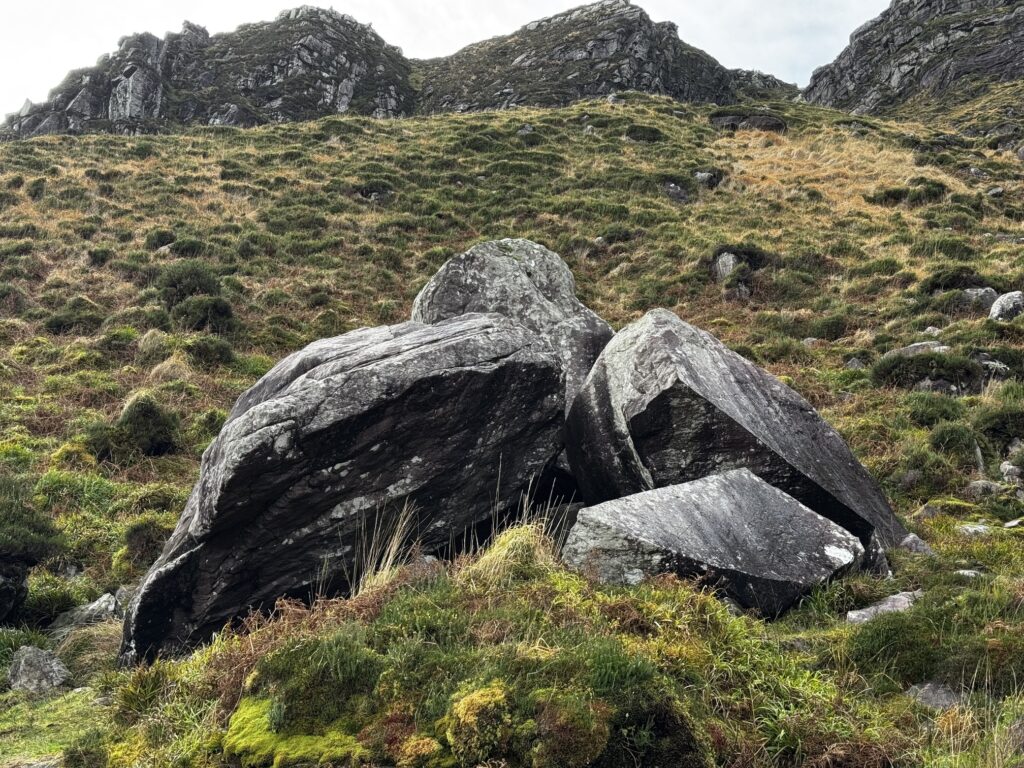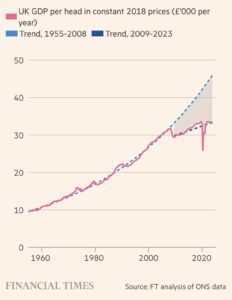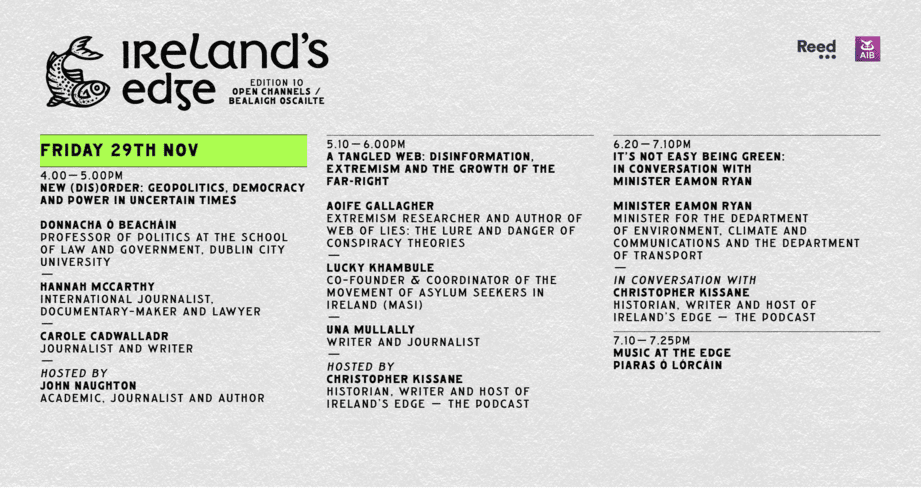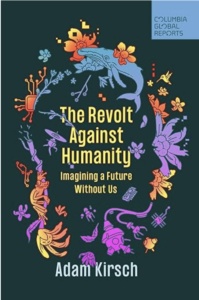The Granta at night

My favourite Cambridge pub, seen the other evening on my way home.
Quote of the Day
”Whoever said money can’t buy you happiness didn’t know where to shop.”
- Gertrude Stein
Musical alternative to the morning’s radio news
Gerry O’Connor and Arty McGlynn | Francie Brearton’s (Jig) & Sally Kelly’s (Reel)
Long Read of the Day
Optical Delusions
A fine blast by Tina Brown on how “Trump has shown again he can distract us from ominous reality with the parade of glitz to which America has become addicted”.
World War III may be Topic A in Europe and the Middle East but, here in America, all eyes are on Mar-a-Lago, the capital of Gloat. Trump has shown again he can distract us from the ominous reality brewing all over the map with the parade of glitz to which America has become terminally addicted. We first learned that in 2016 at the Republican Convention when the whole camera-ready Trump clan was disgorged from the plane with his name on it and streamed across the tarmac, the Trump women with their long legs, short skirts, and glossy, highlighted Fox News hair, the big-shouldered loudness of Trump in his tomato tie. Ever since, liberals have been yelling that Trump is a braggart, a charlatan, a bankruptcy-spawning loser whom they could skewer with felonies, impeachments, and the latest daily outrage.
But to hardscrabble male voters of every ethnicity, nothing looks more like success than Trump’s phallic golden tower in Manhattan, the brace of fantasy luxury hotels, and the 114-room Palm Beach Versailles with its gold-plated crests, multi-chandeliered Donald J. Trump ballroom, and 27-hole golf course. And who could look and sound more like a leader than an assassination survivor with a raised fist, a bloody ear, and an instantaneous bellow of “fight, fight, fight?”
Post-election, Trump knows how to keep the story lines fresh…
Fighting talk. I loved it.
Books, etc.
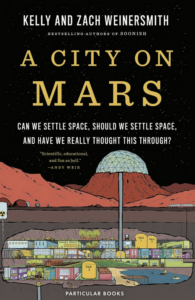
I’m not at all interested in space, and the more I hear Elon Musk the more disinterested I become. But I was struck by this review of the book. Here’s a sample:
They aim to counter the ‘myths, fantasies, and outright misunderstanding of basic facts’ on space settlements as projected by space agencies, corporations and billionaires such as Elon Musk, who spend time and money raising expectations that if things go drastically wrong for us here on earth there is a plan B, and we can expect space settlements as early as 2050.
I particularly enjoyed the bit of the review that dealt with the important question of sex in space.
Male space travellers have been honest and reported that the fundamental step in the reproductive process, desire, remains very much alive when whizzing around in space. They have also admitted being physiologically capable of engaging in the reproductive process. But the jury is out when it comes to female astronauts’ sexual activity in spacecrafts. A newly married couple on a space station retained the privacy of their intimacy, leaving fellow travellers and scientists to speculate on the couple’s sexual activity during their time in space, especially when practical issues on board a spacecraft are an impediment to amorous moments between couples. The space within the shuttle and the presence of fellow travellers on board suggest that there would need to be either some collective agreement amongst all on board to secure privacy, and gravity issues might call for a third-party intervention to ensure the ‘successful rendezvous and docking’.
I’ve got plenty to read as it is, so I’ll probably give it a miss, but it sounds like a serious and interesting book.
My commonplace booklet
How a society loses its mind
From a Washington Post report on drone hysteria in the Eastern US…
Former Maryland governor Larry Hogan (R) — who recently lost a campaign for U.S. Senate — posted a video on X last week showing what he said were drones flying over his house. They turned out to be stars in the constellation Orion, according to Washington Post meteorologist Matthew Cappucci.
Sen. Andy Kim (D-New Jersey) posted a long thread on X describing strange lights he saw during a ride-along with local police. A day later, he clarified that after further research, he’d concluded that what he saw was probably an airplane.
“We have a lot of distrust in politics/government right now, and we need federal gov to respect the right for the public to be informed,” Kim said on X over the weekend.
Linkblog
Something I noticed, while drinking from the Internet firehose.
- An AI’s appraisal of Tyler Cowen .
A reader of the economist Tyler Cowen’s excellent blog (of which I am also a reader) asked Perplexity to “analyze Tyler Cowen’s tone across his books, his articles, his blog posts, his podcast, and his tweets and show differences and similarities across those media? The assessment is interesting IMO.
This Blog is also available as an email three days a week. If you think that might suit you better, why not subscribe? One email on Mondays, Wednesdays and Fridays delivered to your inbox at 6am UK time. It’s free, and you can always unsubscribe if you conclude your inbox is full enough already!











